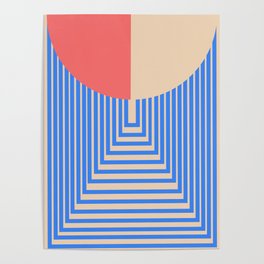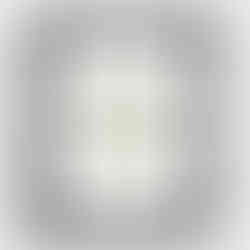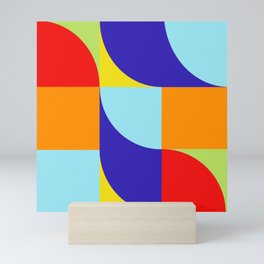Inspired by bauhaus, history and influences on us
- jessica moritz

- Aug 30, 2021
- 4 min read
Updated: Mar 26, 2023
A little bit of history to learn more about Bauhaus, origins, timeline and founders

The Staatliches Bauhaus commonly known as the Bauhaus (German: "building house"), was a German art school operational from 1919 to 1933 that combined crafts and the fine arts.[1] The school became famous for its approach to design, which attempted to unify the principles of mass production with individual artistic vision and strove to combine aesthetics with everyday function.
The Bauhaus was founded by architect Walter Gropius in Weimar. It was grounded in the idea of creating a Gesamtkunstwerk ("comprehensive artwork") in which all the arts would eventually be brought together. The Bauhaus style later became one of the most influential currents in modern design, modernist architecture and art, design, and architectural education. The Bauhaus movement had a profound influence upon subsequent developments in art, architecture, graphic design, interior design, industrial design, and typography. Staff at the Bauhaus included prominent artists such as Paul Klee, Wassily Kandinsky, and László Moholy-Nagy at various points.

Bauhaus founder Walter Gropius (1883–1969)
The school existed in three German cities—Weimar, from 1919 to 1925; Dessau, from 1925 to 1932; and Berlin, from 1932 to 1933—under three different architect-directors: Walter Gropius from 1919 to 1928; Hannes Meyer from 1928 to 1930; and Ludwig Mies van der Rohe from 1930 until 1933, when the school was closed by its own leadership under pressure from the Nazi regime, having been painted as a centre of communist intellectualism. Although the school was closed, the staff continued to spread its idealistic precepts as they left Germany and emigrated all over the world.


Hans Emil "Hannes" Meyer (November 18, 1889 – July 19, 1954) was a Swissarchitect and second director of the Bauhaus Dessau from 1928 to 1930.
Between 1919 and 1921 Meyer completed planning the housing estate "Freidorf" near the Swiss city of Basel.
In 1923 Meyer co-initiated the architectural magazine 'ABC Beiträge zum Bauen' (Contributions on Building) with Hans Schmidt, Mart Stam, and the Suprematist El Lissitzky in Zurich.
Meyer's design philosophy is represented by the following quote:
"1. sex life, 2. sleeping habits, 3. pets, 4. gardening, 5. personal hygiene, 6. weather protection, 7. hygiene in the home, 8. car maintenance, 9. cooking, 10. heating, 11. exposure to the sun, 12. services - these are the only motives when building a house. We examine the daily routine of everyone who lives in the house and this gives us the functional diagram - the functional diagram and the economic programme are the determining principles of the building project."(Meyer, 1928)


Walter Gropius appointed Meyer to replace him as the school's director on 1 April 1928. Meyer continued with Gropius' innovations to emphasize designing prototypes for serial mass production and functionalist architecture. In the increasingly dangerous political era of the Weimar Republic, Dessau's Mayor, Hesse, alleged that Meyer allowed a Communist student organization to flourish and bring bad publicity to the school, threatening its survival. Hesse dismissed Meyer as head of the Bauhaus school, with a monetary settlement, on August 1, 1930. Meyer's open letter in a left-wing newspaper two weeks later characterizes the Bauhaus as "Incestuous theories (blocking) all access to healthy, life-oriented design... As head of the Bauhaus, I fought the Bauhaus style".

Ludwig Mies van der Rohe (/miːs/ MEESS; German: [miːs]; born Maria Ludwig Michael Mies; March 27, 1886 – August 17, 1969) was a German architect. He was commonly referred to as Mies, his surname. Along with Alvar Aalto, Le Corbusier, Walter Gropius and Frank Lloyd Wright, he is regarded as one of the pioneers of modernist architecture.
In the 1930s, Mies was the last director of the Bauhaus, a ground-breaking school of modern art, design and architecture.
After Nazism's rise to power, with its strong opposition to modernism (leading to the closing of the Bauhaus itself), Mies emigrated to the United States. He accepted the position to head the architecture school at the Armour Institute of Technology (later the Illinois Institute of Technology), in Chicago.


Nowadays, you can find in many cities, contemporary surroundings, extension or repetition of Bauhaus Architecture, Bauhaus design and also in Fine Arts.
As many Artists part of Bauhaus escaped or left Germany to survive and continue to create, Bauhaus grew in many countries and fade in urban landscape.
Some places host gems of architecture, design and carry the history of Bauhaus in our daily life.
Here's some Bauhaus Buildings that are In Tel Aviv
Bauhaus Architecture in Brazil:
Bauhaus Architecture in Japan:
Now that you are familiar with the Bauhaus Style, can you identify around you bauhaus design, bauhaus architecture, or inspiration in your city or even in your home?
Here's some of my works, paintings, art prints, objects and designs inspired by Bauhaus:
this is a selection of my analog works, some are listed on Saatchi, you can start collecting and learning more about my work:
-my website: https://www.jessicamoritz.com
listed artworks : https://www.saatchiart.com/jesmoritz
This is a selection of some of the prints available, you can order them here
this link will give you a discount: collect Jessica Moritz Art prints on Society 6
if you have questions, want to order a special commission, or collaborate
you can send me an email moritz.jessica@gmail.com



























































Comments